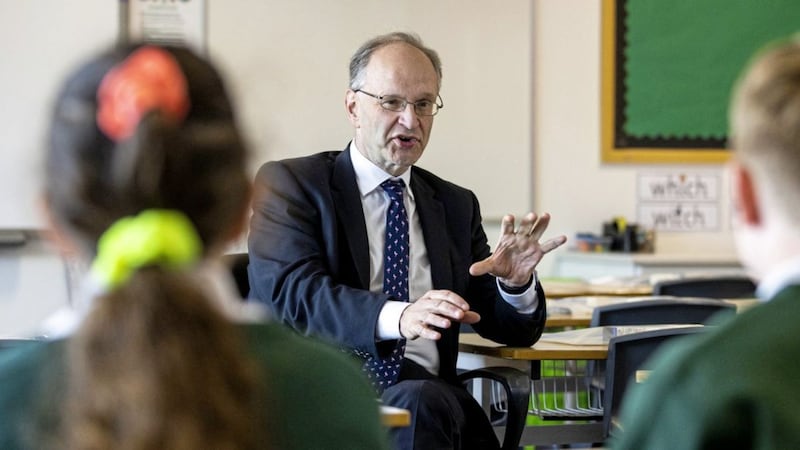Calls for the resignation of a government minister are usually based on the assumption that his/her replacement will be a significant improvement.
This may explain why there have not been mass public protests demanding Peter Weir’s resignation - it is hard to think of anyone in the DUP who would perform any better as education minister.
Mr Weir’s performance has been based on closely following his party’s conservative education policy, with a specific loyalty to its obsession with academic selection. He might have muddled through had he developed a more effective decision-making system.
Instead he dithered and generally left decisions to the last minute, suggesting that he was constantly playing catch-up. This created administrative confusion for his civil servants, uncertainty for teachers and disorientation for children.
Perhaps his most memorable claim was that he lacked the power to prevent a private company, AQE (Association for Quality Education), from going ahead with academic selection next month. If an education minister believes he lacks the power to shape our education system, who does he think has that power?
Michelle O’Neill said it was a shame that the AQE proposed to go ahead with tests. She had a point, but the real shame is that she is deputy first minister in a government which implements academic selection. Almost 20 years after Martin McGuinness claimed to have abolished the 11-plus in 2002, she now presides over not one, but two forms of academic selection: one for Catholics and one for Protestants.
(The Catholic one is run by the Post Primary Transfer Consortium. So Catholics have a consortium, but Protestants only have an association.)
Arguments over whether the tests should be held during a pandemic mask a greater problem. The issue is not this year’s test, but whether academic selection should exist (and I have spent much of my adult life opposing it). But, like most topics in Stormont, what should have been an enlightened debate degenerated into a sectarian shouting match.
It was triggered by SF’s initial attack on the 11-plus, which generated a sectarian knee-jerk reaction from the DUP. Had SF recognised that academic selection was the symptom and not the disease, they might reasonably have approached it by advocating a thorough reform of education.
They might have begun, for example, by exploring Finland’s practice of children not starting school until they are seven. They enjoy their early years at “forest school’, where they spend most of the day outdoors exploring, playing and learning about the world around them.
SF could then have extended that review up to university level. In Finland, higher education is totally free to everyone and universities exist not just to shepherd people into careers, but to include learning for learning’s sake.
Here, publicly-funded universities keep their finances secret and placing higher education under the economy department indicates that Stormont sees education as an economic production line (the type of system Pearse warned against in his views on education.)
An overall review of our education system would have re-defined what education is and what it should seek to achieve. In that context, academic selection for 11-year-olds would automatically become redundant.
A peace process might reasonably be expected to be based on the enlightenment which only education can deliver. But Stormont’s first priority was to secure control of the police. Education became just another sectarian dog-fight.
Like academic selection, the minister is not the disease - he is just another symptom. He is a product of a failed system of government (as its handling of the coronavirus shows) and until that system is repaired or replaced, there can be little educational progress.
As Stormont debates show, we are far from being a learned society (indeed a learned society would never have produced Stormont). Sectarianism thrives on ignorance and politics here thrive on sectarianism. So there are votes in preserving ignorance, which is why our education system is unlikely to change and why Peter Weir’s resignation would make little difference.








